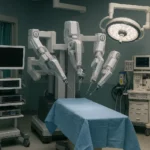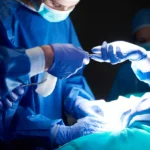Sleep Apnea Without CPAP: Explore the Latest Alternatives & Treatments
For some people, CPAP machines are a lifesaver — but for many, they’re just plain frustrating. Wearing a bulky mask, dealing with the constant noise, and having your sleep disturbed night after night can be exhausting. It’s no surprise that many end up giving up on them and start looking for better, more comfortable alternatives in sleep apnea treatment.
Sleep apnea is not just loud snoring; it entails repeated cessation of breathing, once again, interfering with sleep, putting health at risk, etc. If it goes untreated, it could lead to terrible consequences like a stroke, hypertension, and heart failure.
Researchers and clinicians are labeling most invasive dental procedures as surgeries in a bid to combat sleep apnea in patients. They are developing implantable CPAP and surgeries as solutions, providing relief without the nightly hassle of a mask. These innovations may not merely treat symptoms, but basically change lives.
Understanding Sleep Apnea
What is Sleep Apnea?
It is a sleep disorder wherein breath gets interrupted frequently while sleeping. The duration of these interruptions varies from seconds to minutes, and in some cases, they can even repeat dozens of times or sometimes even hundreds in one night.
Types of Sleep Apnea:
- Obstructive sleep apnea (OSA): It is the most widely spread among the blockaged pathways that cause breath to be disrupted.
2. Central sleep apnea: It does not provide a proper signal from the brain to breathing muscles.
3. Complex sleep apnea: Mixed factors between obstructive and central.
It leads to those pauses in breathing affect sleep and breathing. Each stop in breathing could lead to drastic drops in the oxygen level in blood. At disrupts the intact sleep cycle. A person with sleep apnea wakes up unrefreshed and is often overtaken by fatigue through the remaining hours they would have spent in bed.
Common Symptoms
- Loud snoring
- Gasping or choking during sleep
- Daytime fatigue
- Morning headaches
- Mood swings or irritability
Health Risks of Untreated Sleep Apnea Leaving sleep apnea untreated increases the risk of:
- Heart disease
- High blood pressure
- Stroke
- Type 2 diabetes
- Memory problems
The CPAP Conundrum: CPAP therapy delivers pressurised air through a mask to keep airways open. While effective, many patients find it uncomfortable and disruptive. Compliance is a challenge; studies show up to 50% of patients stop using it over time. This is why, sleep apnea supportive therapy and implantable alternatives are gaining popularity.
The Shift Towards CPAP Alternatives
The reason is simple: the patient prefers a treatment that doesn’t disturb their sleep. Most people have discomfort using CPAP masks, nasal dryness, claustrophobia and noise from the machines. These frustrations actually coupled with rapid technology advances create the urges for more user-friendly options.
Advances in Technology Presently, solutions today are directed to comfort, individualisation and non-invasiveness. Medical progress is also directed to permanent individualised therapies for sleep apnea, like implantation devices and robotic surgery.
Goals for Alternative Therapies to CPAPs
- Access to open airways through natural means or devices
- Experience better sleep quality
- Improve comfort and long-term use
Breakthrough Implantable Devices
Inspire Therapy – Read About a Great Invention. Inspire is an FDA-approved implant for sleep apnea. It stimulates the hypoglossal nerve to keep the airway open during sleep. It is implanted by a brief and simple outpatient procedure.
How It Works – The device tracks your breathing and stimulates your nerves to keep your airway open. The patient presses a remote control to turn the device on at night before going to bed.
Who It Is For: Ideal for moderate to severe OSA patients who cannot tolerate CPAP therapy. They must be qualified by sleep studies.
Clinical Effectiveness – Studies show a 70-80% reduction in apnea events. Most patients thus report feeling better; better sleep and better quality of life.
Patient Stories – Users are finally sleeping through the night. One patient told how they don’t feel tired anymore and can concentrate at work.
Other Emerging Devices
- Genio System: A battery-free implantable CPAP device for stimulation of the tongue muscle.
- ExciteOSA: Strengthening tongue muscles for therapy in the daytime.
Pros and Cons:
Pros:
- No mask or hose
- High compliance
- Improved quality of life
Cons:
- Surgical procedure
- Costly without insurance
- Not suitable for all apnea types
Surgical Solutions for Sleep Apnea
- Uvulopalatopharyngoplasty (UPPP) This sleep apnea surgery removes excess tissue from the throat to widen the airway.
- Ideal Candidates Those with tissue blockage in the soft palate or tonsils.
- Success Rates Success varies, but some experience significant improvement, especially when paired with other therapies.
- Maxillomandibular Advancement (MMA): This involves moving the upper and lower jaw forward to enlarge the airway. It is more invasive but highly effective.
- Benefits: Permanent structural changes mean long-term relief. Apnea episodes can decrease by over 80%.
- Risks and Recovery: Recovery takes several weeks. There’s swelling, discomfort, and dietary changes during healing.
- Genioglossus Advancement (GA): This targets the tongue’s attachment point, preventing it from falling back and blocking airways.
- Often Combined With Other Surgeries: It is typically part of multi-level surgery plans for better results.
- Nasal and Soft Tissue Procedures: Fixing deviated septums or reducing turbinates improves nasal airflow and may help patients tolerate CPAP better or avoid it entirely.
- Mandibular Repositioning Device: A non-invasive dental solution used in mild to moderate cases. It repositions the lower jaw forward, helping to keep the airway open.
- Comparing Surgical Options:
- Recovery: Ranges from a few days to several weeks
- Success: Highest in combination surgeries
- Long-term Results: Many patients report lasting improvement
What to Consider Before Choosing an Alternative
- Diagnosis First Always start with a sleep study. It is necessary to get to the type and severity of apnea you possess.
- Expert Advice: Get in consultation with an ENT and a sleep specialist. They would guide you through the right direction.
- Compare Options: Think of your lifestyle, medical conditions, and personal comfort. Not all options fit in each patient.
- Weight Cost: Implants and surgery can be a lot-expensive. Check whether the insurance covers them and consider the long-term benefits.
- Know the Risks: All the procedure is associated with some risk. Inquire about recovery, side effects and after-care concern.
When to See a Doctor for Sleep Apnea
Recognizing the signs of sleep apnea early can make all the difference in getting timely, effective treatment. Many people ignore the symptoms for years, thinking it’s just snoring or tiredness. But if left untreated, sleep apnea can cause serious health problems like high blood pressure, heart failure, stroke, and even sudden cardiac events.
Here are clear signs it’s time to see a sleep specialist or ENT doctor:
- Loud and Frequent Snoring: If your snoring is loud enough to disturb others or wake you up, it’s not normal and could be a sign of obstructive sleep apnea.
- Gasping, Choking, or Paused Breathing During Sleep: If your partner notices you stop breathing for a few seconds while sleeping, or you wake up choking or gasping, seek medical help immediately.
- Daytime Fatigue or Sleepiness: If you feel excessively tired during the day despite spending enough time in bed, it may mean your sleep is constantly interrupted.
- Morning Headaches: Waking up with headaches could be due to low oxygen levels during sleep caused by apnea episodes.
- Difficulty Concentrating or Memory Loss: Cognitive issues and mood changes like irritability or depression may be linked to poor sleep quality.
- High Blood Pressure or Heart Problems: If you already have cardiovascular issues, untreated sleep apnea can make them worse.
- CPAP Intolerance: If you’re currently using a CPAP machine but find it uncomfortable or impossible to use, consult your doctor to explore CPAP alternatives like Inspire therapy or surgical options.
The Future of Sleep Apnea Treatment
- More intelligent devices: The future of sleep apnea therapies involves AI-powered implants that learn your specific breathing patterns and train alongside you. These innovations promise more personalized and adaptive treatment.
- Regenerative Therapy: Even if still in an embryonic stage, therapies that include stem cells or gene editing might offer cures later.
- Greater Awareness: More awareness is being brought into early detection in sleep apnea. Screening is better; improved outcomes.
Why Choose India for Sleep Apnea Treatment?
If you’re looking for safe, affordable, and effective treatment for sleep apnea, India is one of the best countries to consider. Here’s why thousands of international patients choose India every year:
- Top-Rated Hospitals: India is home to world-class hospitals accredited by JCI and NABH, ensuring global quality and safety standards in patient care.
- Globally Trained Doctors: Sleep apnea specialists in India are highly experienced and many have received training from the US, UK, and Europe, bringing international expertise to your treatment.
- Advanced Technology & Techniques: Indian hospitals use cutting-edge technologies like robot-assisted surgery, home sleep testing, and even implantable CPAP devices, offering the latest in sleep apnea care.
- Affordable Cost of Treatment: Sleep apnea treatment in India can cost up to 60-80% less than in countries like the USA, UK, or Australia — with no compromise on quality.
- Quick Appointments & No Waiting: You can expect fast consultations, immediate diagnostics, and minimal wait times for surgeries or procedures, speeding up your recovery.
- Supportive Medical Tourism Services: International patients get complete support — from visa assistance and airport pickup to translation services and post-treatment care — making your medical trip hassle-free.
- Comprehensive Diagnosis Facilities: India offers access to modern sleep labs, overnight polysomnography, and home sleep tests to ensure accurate diagnosis and effective care.
- English-Speaking Medical Staff: Most doctors and healthcare workers in India are fluent in English, ensuring clear communication and comfort for international patients.
Why Should You Choose Regimen Healthcare for Sleep Apnea Treatment?
If you’re suffering from sleep apnea and planning to travel for treatment, Regimen Healthcare is your trusted partner for safe, smooth, and successful care in India. Here’s why international patients choose us:
- Access to India’s Best Hospitals & Doctors
We connect you directly with top JCI/NABH-accredited hospitals and sleep apnea specialists who are trained in the US, UK, and Europe. - Hassle-Free Medical Visa & Travel Assistance
We help you with medical visa applications, flight bookings, and hotel arrangements, so you can focus on your health while we handle the logistics. - Multilingual Team for Easy Communication
Our caring staff speaks English, Arabic, Russian, French, and Bangla — making sure language is never a barrier for you or your family. - Transparent Treatment Plans
You’ll receive a clear medical opinion, detailed cost breakdown, and no hidden charges — so you always know what to expect. - Coordinated Hospital Experience
We ensure fast appointments, priority diagnostics, and quick procedures, saving you time and reducing delays. - Affordable & High-Quality Treatment
We help you get world-class treatment at affordable prices, often 60–80% cheaper than in Western countries. - Post-Treatment Follow-up
Our care doesn’t stop at discharge — we offer ongoing follow-up and check-ins to ensure long-term success.
Conclusion
Modern appliances for sleep are no longer limited to CPAP. Today, many treatment alternatives exist, from smart implants to reconstructive surgery. Thus, the quest begins to find the solution that best fits your body and your lifestyle.
Consult with your doctor, investigate all alternatives, and do not accept any compromise on sleep. If you’re tired of your mask, then it may be time to consider the next thing.
If you’re tired of struggling with CPAP, it is time to take control of your sleep health. Reach out to Regimen Healthcare for a consultation, and let’s help you breathe and sleep better.
📞 Contact us at: +91-9310356465
🌐 Visit: www.regimenhealthcare.com
FAQs
1. What is the best alternative to CPAP for sleep apnea?
Inspire therapy, surgical options like MMA, and mandibular repositioning devices are top alternatives. They offer relief beyond CPAP.
2. Is sleep apnea surgery painful?
Mild to moderate discomfort is expected post-surgery. However, it is managed well with medication.
3. How long does recovery take after sleep apnea surgery?
Recovery ranges from a few days to several weeks depending on the procedure.
4. Are implantable devices like Inspire safe?
Yes, they are FDA-approved and have shown high success rates in clinical trials.
5. Can I stop using CPAP if I choose surgery or an implant?
Many patients are able to stop using CPAP after successful treatment. They experience greater comfort and improved quality of sleep.
6. Is sleep apnea treatment available to international patients in India?
Absolutely, India welcomes medical tourists and offers full support through Regimen Healthcare.
7. Is Inspire available in all hospitals in India?
Only selected certified hospitals offer Inspire. Regimen Healthcare connects you to them.
8. What is the cost difference between CPAP and surgery or implants?
While implants or surgeries have a higher upfront cost, they offer long-term savings.
9. How do I start my treatment journey with Regimen Healthcare?
Simply contact us via our website or WhatsApp for a free consultation and guidance.






